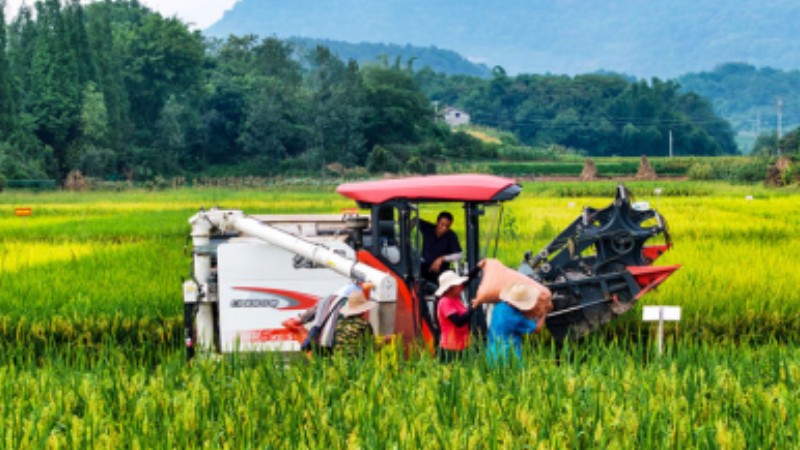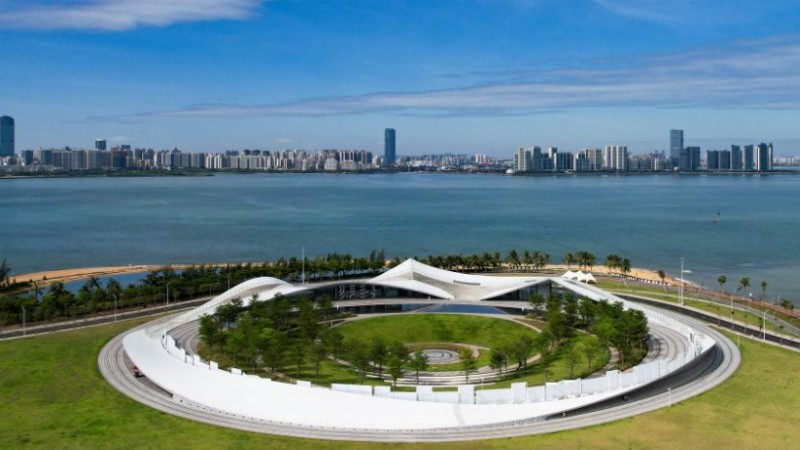RCEP energizing regional trade, boosting cross-border cooperation
KUNMING, Aug. 19 (Xinhua) -- A batch of fresh matsutake mushrooms produced in southwest China's Yunnan Province departed for Japan earlier this month, having received a Regional Comprehensive Economic Partnership (RCEP) Certificate of Origin from Kunming Customs.
"Thanks to the implementation of the RCEP, our exported mushrooms now benefit from a reduced tax rate," said Bi Chongbao with Chuxiong Prefectural Import and Export Co., Ltd. "These mushrooms, which have entered the Japanese market, are worth about 168,800 yuan (about 23,442 U.S. dollars), with a tariff reduction of 1,350 yuan."
Since the implementation of the RCEP, the tax rate for matsutake mushrooms entering Japan has decreased from 3 percent to 2.2 percent. It is expected to continue to decrease in the future, helping to further reduce the company's trading costs, Bi added.
The RCEP comprises 15 members: the 10 Association of Southeast Asian Nations (ASEAN) member states, plus China, Japan, the Republic of Korea, Australia and New Zealand. The RCEP was signed in November 2020 and entered into force on Jan. 1, 2022, with the aim of gradually eliminating tariffs on over 90 percent of goods traded among its members.
During the ongoing seventh China-South Asia Expo held in Kunming, capital city of Yunnan, officials and business representatives from nine RCEP countries, including China, Cambodia and Australia, attended the Second International Cooperation Forum on RCEP Trade and Investment, focusing on topics related to the development of regional trade.
They discussed the more open and convenient development environment that the RCEP has brought to regional economic and trade cooperation. The focus also extended to strategies for maximizing the RCEP's benefits and expanding collaboration among the members.
At the forum, Cambodian Ministry of Commerce's Secretary of State Penn Sovicheat highlighted the significant potential and opportunities for business and investment brought by the RCEP agreement.
The RCEP has played a significant role in driving Cambodia's export growth in the post-pandemic era, said Penn Sovicheat, adding that Cambodia regards the RCEP as a means of facilitating trade, fostering economic growth, diversifying access to foreign markets, attracting investment and deepening engagement within regional supply chains and value chains.
Cambodia is committed to promoting diplomatic and trade cooperation among RCEP members, Sovicheat said.
The RCEP will assist Australian businesses and those that have already invested in southwestern China in tapping into the regional value chain and discovering more opportunities in neighboring markets, echoed Adelle Neary, the Australian Consul General in Chengdu, capital city of southwest China's Sichuan Province.
As a beneficiary of rule-based trading systems, Australia has consistently been an active participant in the global trade systems and an advocate for free trade agreements such as the RCEP, Neary said.
In 2022, trade between China and other RCEP members increased 7.5 percent year on year to 12.95 trillion yuan, accounting for 30.8 percent of the country's total foreign trade value, according to the General Administration of Customs of China.
In the first half of this year, the figure totaled 6.1 trillion yuan, up 1.5 percent year on year, contributing more than 20 percent to China's foreign trade growth.
Photos
Related Stories
- Sri Lanka to join RCEP, signs FTAs with ASEAN countries once debt restructuring completed
- Foreign companies see great opportunities in China as RCEP takes full effect
- Interview: ASEAN looks to China to overcome sluggish global economy -- expert
- China issues over 2.47 mln certificates of origin
- China's aid, investment greatly contribute to Cambodia's development: official
Copyright © 2023 People's Daily Online. All Rights Reserved.









